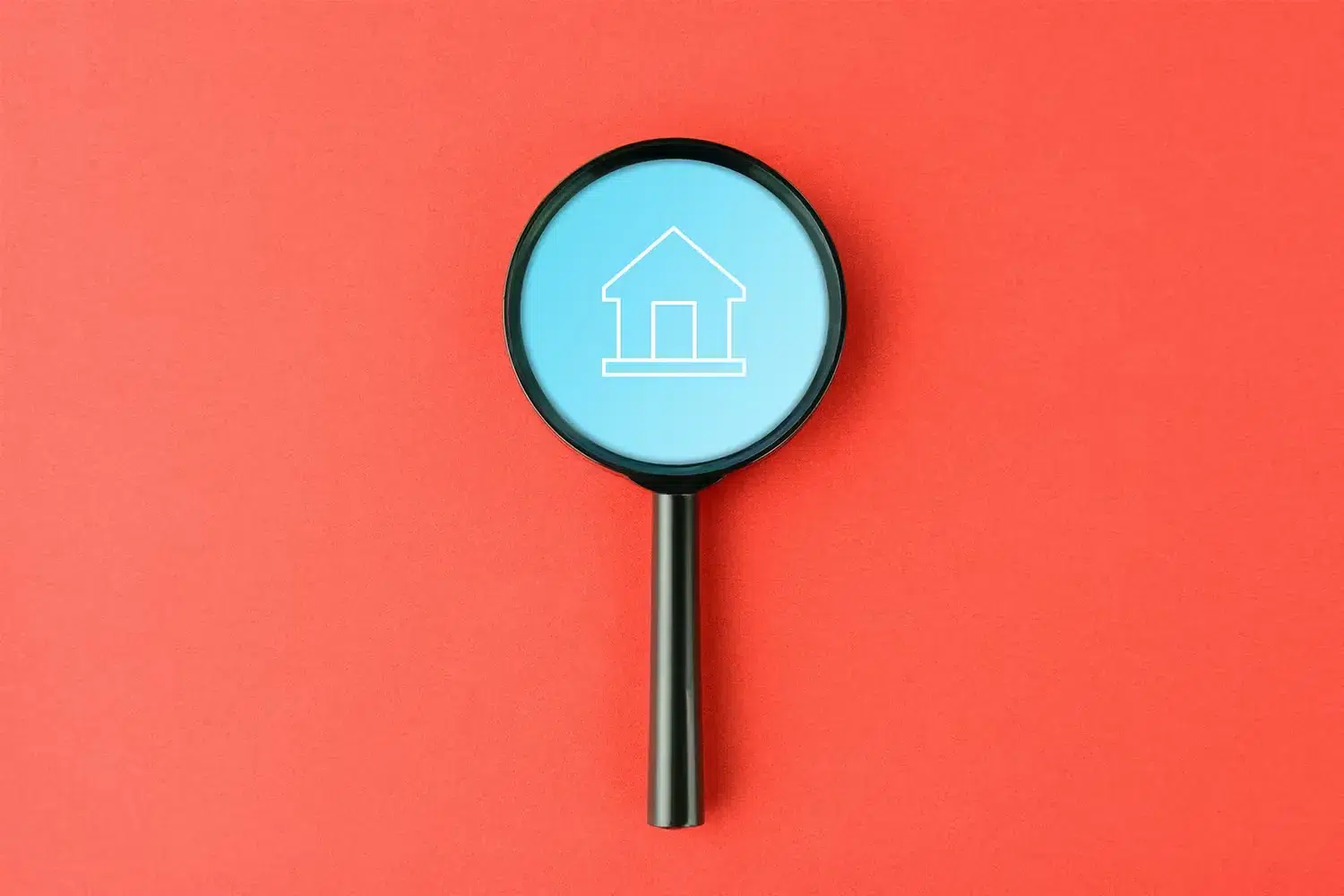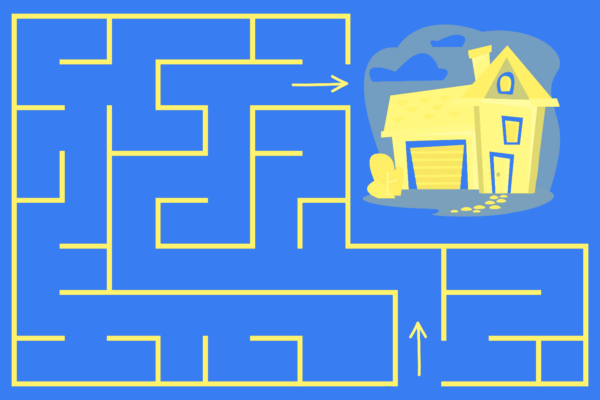
11 Things to Research Before Buying a House

In a perfect world, the home buying process would be as easy as browsing listings online and touring homes. However, purchasing a home requires a lot of research and planning beforehand. From your credit score to the neighborhoods you want to live in, it’s important to make sure you’re ready. If you’re buying your first home, it’s even more important to do your homework! Not sure where to start your homebuying journey? We’ve put together a list of eleven essentials to research before buying a home.
What to Know Before Purchasing a House
Knowing what to do before buying property will help you have a positive homebuying experience. Here are 11 things to keep in mind as you move along the home buying process timeline.
1. Your Credit Score
Many home buyers enter the home buying process not knowing their credit standing. There are three major credit reporting bureaus— Equifax, Experian, and TransUnion— all of whom use their own methods to determine scores
Check your credit score at least once a year.”
A good rule of thumb for a homebuyer (and for every American, really) is to check your credit score at least once a year. If there are issues with your credit report, such as inaccuracies or mitigating circumstances, you should be addressing them before you apply for your mortgage. Doing so can help you get approved faster and obtain a better interest rate. Remember: you can get your free credit report from every bureau once a year!
2. How Much House You Can Afford
Ideally, the home you buy should fit comfortably in your budget. In order to get a true sense of the actual cost of a home, however, you also have to consider that the purchase price is only part of the financial commitment you’re making to your home. Remember: there are other homebuying expenses like taxes, insurance, and maintenance and upkeep costs. Some of these are monthly costs and some are yearly expenses. Our home affordability calculator is a great place to start deciding on your budget.
If you overreach for a higher purchase price at the beginning, you are setting yourself up for a struggle—not only when paying your monthly mortgage, but also when the water heater breaks, or the roof needs to be replaced. Look at your entire budget, your household income, and the percentage that would be taken up by the house. If the total expenses of the home would cost more than 28-30% of your income (before taxes), it’s time to carefully reconsider how much house you can afford.
3. Total Loan Costs
Many home buyers become obsessed with the interest rate, ignoring all the other costs that come with a loan. When comparing mortgage offers, it’s important to keep the bigger picture in mind. In addition to the interest rate, look at closing costs and fees like:
- Application fees
- Appraisal fees
- Credit report fees
- Underwriting fees
- Mortgage points
You’ll also want to carefully read the terms and conditions on any loan estimates you receive. Be on the lookout for things like balloon payments or prepayment penalties.
Avoid sacrificing other benefits for the sake of the lowest interest rate you can get.”
It may cost you in the long run.
4. What You’ll Need for a Down Payment
On top of planning for future payments, you must have enough cash on hand to cover your down payment. How much you’ll need will depend on a few things, like the purchase price of the house you’re buying and what type of mortgage you’ll have.
The conservative standard for many years has been 20% of the purchase price. It’s possible to get a house without putting 20% down, through the use of special mortgage loans like VA loans or FHA loans. However: if you don’t put 20% down, you will have something called “Private Mortgage Insurance”, or PMI, tacked onto your mortgage. PMI generally costs between 0.5% and 1% of the total mortgage amount.
With or without PMI, a down payment will likely require a good chunk of your savings.
Try and balance the need for a down payment while also keeping some savings. ”
It’s always a good idea to have some funds tucked away for living expenses and emergencies.
5. The Cost of Property Taxes
Property taxes can vary widely, depending on your location. It’s important to check out current rates, as well as historical data, so you can get an idea of what you can expect to pay in the future. Consult the state or local office in the location of your future home to find an accurate property tax rate. If you’re using an online calculator, making sure the tax rate is being assessed accurately—local and property taxes can vary by quite a bit!
If you’re fortunate, the value of your house will rise steadily as the years go by. Ideally, it will outstrip inflation and gain real value. While it’s exciting that your house has gone up in value by 25% since you purchased it, there is a dark lining to that silver cloud: your property taxes are going to go up accordingly.
Property taxes rarely go down (if they do, it’s probably because your area is losing property value!). In a booming market, you could see your annual property tax bill growing significantly each year. While there’s no way to predict how your future home might be affected, run the numbers for a home that increases value rapidly. Can you still afford it in ten years?
6. Homeowners Insurance
Homeowners insurance needs to be accounted for in your budget. Like property taxes, this cost can vary widely by location. For instance, if you live in a flood zone, you will have to purchase additional flood insurance; flooding is not typically covered by homeowners insurance. Do your research, find out what your insurance will cover, and be prepared.
7. HOA Fees
You’re eyeing a brand-new home in a great development. Maybe it’s gated or it has some extra amenities, like a pool. Great! But ask yourself some questions first:
- How much are the HOA fees?
- Are there exclusions or add-ons required to use all the amenities?
- Is there a built-in rate increase every year?
- How much will your HOA fees cost per year?
- How much will your HOA fees cost over the lifetime of the home?
- Are there additional requirements outside of the HOA, like landscaping costs to remain in good standing with the HOA?
HOA fees aren’t necessarily good or bad—but they are an additional cost to consider.
8. Cost of a New Home vs. Older Home
When it comes to buying a newer home versus a much older one, the important rule of thumb here is this: know what you want and plan accordingly.
There are going to be savings and costs for both, some of which are obvious and some of which are not. Newer homes can have a higher upfront cost compared to older homes. But with an older home, you’ll need to consider the age of the roof, exterior and interior paint, fencing, and appliances. If you’re looking for a fresh start, consider the total costs of renovation. When you add renovation costs and home purchase costs, does it still make sense to buy that home?
9. Tax Exemptions That You May Qualify For
One of your first acts after purchasing your house should be to apply for a homestead with the county.
Apply for a homestead with the county. ”
This established your residency, so they know that you are living in the home and not renting it out. Check to see what exemptions or deductions might apply.
Remember that the county is not going to tell you about any tax exemptions—you are going to have to discover them for yourself. Doing so could save you a considerable amount of money.
10. Commuting Costs
Maybe you’ve found the perfect home—the price makes sense, the property taxes are well within your budget. But have you considered how much your commute will cost you? The cost of gas is just one factor. Racking up miles on your vehicle costs in the long run, too. Monthly passes for mass transportation and toll roads aren’t cheap, either. Factor in both time and money when considering your new commute; spending an hour on the road both ways might not seem so worth it after a year.
11. The Quality of Your Schools
If you’re a parent or thinking of becoming one, you want great schools for your children. Do your homework on the schools in the area in which you’re looking to buy. A better school system might just tip the balance in favor of one home over another when you consider your children’s education.
Keep in mind, however, that better school systems can sometimes mean higher tax rates. Make sure you know what it’s going to cost you to live where education is best.
Do your research before buying a home.
Buying a home is a big commitment. There are so many factors to consider before buying, but if you do your research, you’ll be that much better equipped when you start looking for homes.
Here at Amplify, we want to make sure you have the tools you need to get a great, affordable mortgage. Getting prequalified for your mortgage is the next step; consult our team today!




